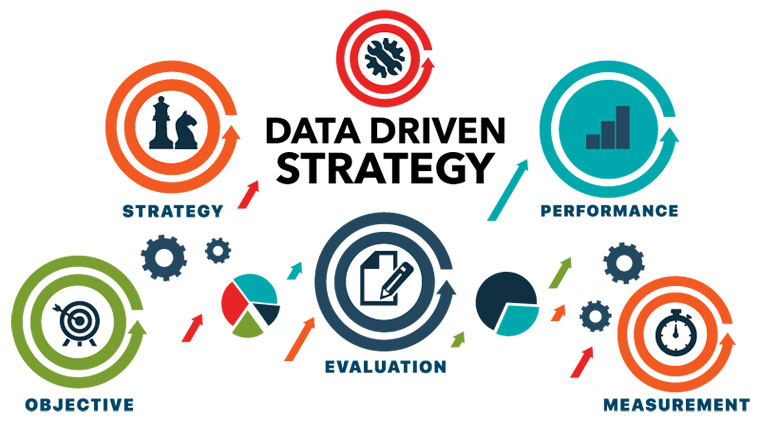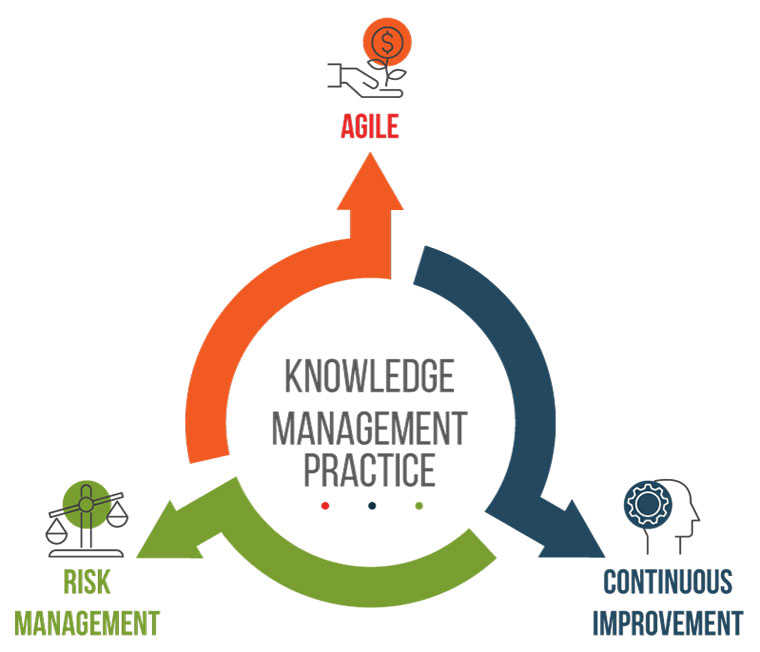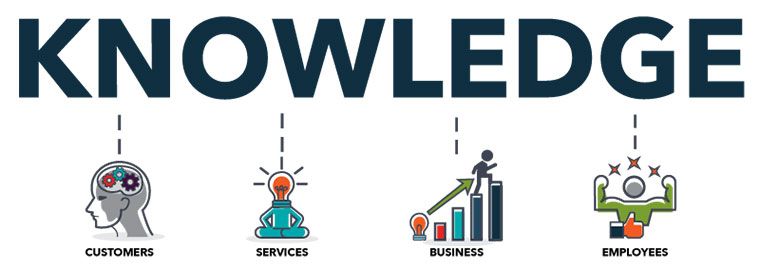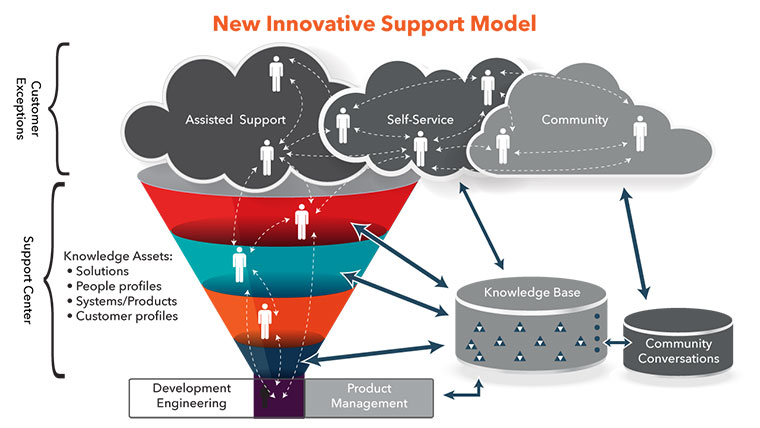Disruption is all around us. Industries and markets are being turned upside down in a matter of days as organizations across the globe develop responses to the pandemic. If anything, it proves that when we need to, we can change strategies and turn on a dime given the right motivation. So why is it so difficult to get organizations to understand that knowledge management needs to be part of the overall strategy for the entire organization?
We spend thousands of dollars on ITSM initiatives, enterprise service management, and project management to operate more efficiently, eliminating waste, improving results, and lowering costs. But the real value comes from a better understanding of our customers, employees, and our services. The ability to make data-driven decisions will improve an organization's value creation faster than improving processes.
Join Julie for Session 403: Top 10 Reasons Why Knowledge Management Initiatives Fail (and How to Avoid Them) at SupportWorld Live: A Digital Experience!
Join us!
A Data-Driven Shift in Focus
Think for just a moment about today's environment. Leaders are making data-driven decisions about how to save human lives. The numbers give us facts, undeniable facts. From those facts, we were able to make significant changes in strategy to combat the COVID-19 virus. Once we lost focus on the data, the virus began to spiral out of control in new hotspots.

And the pandemic has had a significant impact on IT organizations who have been forced to adapt the infrastructure at a rapid pace in support of the business. Organizations initiated projects to rapidly deploy laptops to move staff from office to home office. Security teams scaled up VPN licenses and deployments to ensure secure connections into corporate intranet with access to critical systems. IT Teams identified and launched collaborative platforms to ensure remote workers can meet with other team members. Critical systems rapidly migrated to the cloud to provide scalability and flexibility in a quickly changing environment. IT support teams identified as essential workers had to support business processes that invested heavily in digital transformation to modify critical delivery processes as required by state, county, and local governments (requiring investments in virtual platforms that connect the business to its customers, closing brick and mortar locations and moving customer relations entirely to online communities, rapid change of business models).
Why Can’t Knowledge Management Be the New Normal?
Now, imagine that you have a knowledge management strategy that allows you to understand your customers at that same level of detail—developing new strategies that enable your organization to turn on a dime to respond to changing customer needs, prepare and launch new innovative services that delight your customers, and make meaningful changes to existing delivery models that customers need. When we focus on process improvements, we are merely controlling how our teams work together. If we successfully define the process, and everyone follows it, we will create greater consistency and reduce errors. But how does defining a process and managing that process allow you to change strategies in response to customers' demands? If anything, rigid processes impede our ability to be agile and responsive to the business.
Rigid processes impede our ability to be agile and responsive to the business.

The proof is widely around us when working with highly successful companies who have mastered the knowledge economy and are using knowledge to disrupt industries and markets. The more data gathered about customers and the faster organizations can analyze and glean insights from that data, the faster we get to the results that really matter. Can we not see how successful companies like Google, Facebook, Amazon, and Apple have become when focused on a knowledge-driven business strategy?
Business Requires Agility
Process improvement initiatives are only going to slow your organization down and limit your ability to respond to your industry's changing needs. We need collaboration, new business models, and a knowledge-based culture to survive. Once we navigate through this current pandemic, we need to learn the lessons to be learned. Businesses require agility.

When required, we can respond to pressing business needs and do so successfully while managing risk. If we can respond to a healthcare crisis, why can we not do it when our competitors are driving innovations and we need to respond? Why can we not do it when our customers ask us to reduce friction, improve the overall customer experience, and provide personalized services? The solution is in the knowledge we gather about our customers, our services, our employees, and our business. The more we study the facts, the better we can prepare for and manage change successfully.

To successfully navigate this sea of disruption, we must first put knowledge ahead of other strategic initiatives. We have one last chance to get this right before it's too late. Knowledge is at the core of disruption. The more we know, the more we can make the right decisions. Here is my list of what is needed in today’s disruption economy, and note that knowledge is at the top:
- Disruption requires knowledge (volume, variety, veracity, and velocity)
- Disruption requires collaboration
- Disruption requires letting go of pre-established norms
- Disruption requires new and innovative technologies
- Disruption requires innovative business/delivery models
- Disruption requires personalization/customization
- Disruption requires connecting with our customers
Nowhere in this list do we mention process improvements. If disruption were easy, then every company out there would be getting it right. Unfortunately, too many organizations are spending money on initiatives that are not delivering the expected results.
Building a Better Customer Experience
One area of service and support that can be dramatically improved with better knowledge management practices is the customer experience. If we use knowledge from multiple channels such as chat, phone, incidents, problems, known errors, self-service, the organization can develop a much more comprehensive view of the complete experience. Our focus for improvements is often isolated to a single source of information, and in many cases, the information is unreliable or needs cleansing before analyzing to glean insights. Using a knowledge-based approach to improvements, the organization can not only identify improvements to the delivery and support for services, but services can also be enhanced by reducing errors and introducing innovations. An even greater possibility is identifying services that are needed that are not provided in the current environment.
The support organization's advancements are driven from the collection of knowledge, using that knowledge in new ways, and connecting with our customers in meaningful ways. Knowledge has an empowering effect; it often transforms the support organization with innovative advancements in the support delivery model. When we understand our customers at a deeper level, the support organization can even personalize services in meaningful ways that delight the customers.

Time to Break Down Barriers
It's time for us to break down the organizational barriers and develop a comprehensive knowledge management strategy that helps us connect with our customers, empower collaboration, and drive innovation in successful ways. It isn't a matter of should we do knowledge management. The answer to that question has been a resounding "Yes" for the last decade. Now it is a matter of putting a data-driven culture first. We no longer can afford to base strategic decisions based upon "I Think," but instead drive change from the power place of "I Know!"
Julie is a dynamic, engaging change agent who brings authenticity, integrity, and passion to practitioners worldwide. Through her books, articles, speaking, consulting, and teaching, her purpose is to spark change in the world with thought-provoking dialog and interaction on topics of authentic leadership, business strategy, knowledge management, organizational culture, and innovation. Julie has a B.S. in computer science from The Ohio State University and an MaED from the University of Phoenix and is currently pursuing her Ph.D. in Management and Organizational Leadership in Information Systems & Technology from the University of Phoenix. She is an ITIL Expert, Certified Help Desk Director, and Certified Governance IT Professional. She is an HDI Business Associate and teaches training and certification classes for service and support professionals. Visit her website, and follow her on Twitter @JulieMohr, YouTube, and LinkedIn.